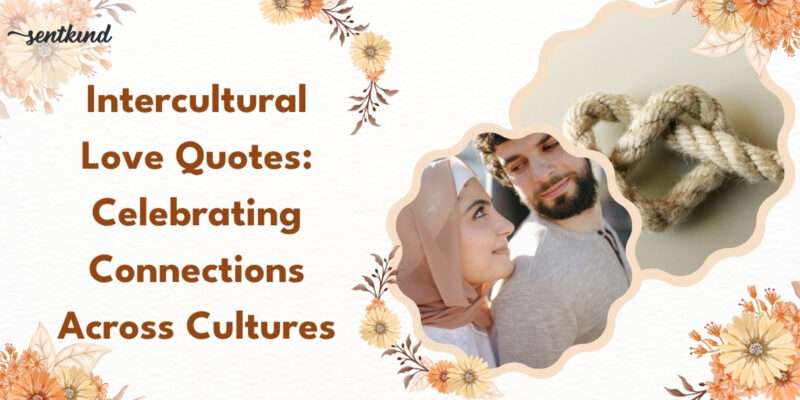Romantic love is a powerful emotion that combines deep affection, attraction, and attachment. It’s a unique bond that brings people closer and creates lasting connections. In this article, we’ll explore romantic love, its phases, components, and its role in healthy relationships, offering insights into how to nurture this essential element of human connection.
What is Romantic Love?
Romantic love stands apart from other types of love, such as friendship or familial love, through its combination of emotional connection, physical attraction, and longing for closeness. This type of love is fueled by intense emotions that build a special connection between partners, where attraction and affection play central roles.
At its core, romantic love is a cornerstone in long-term relationships, providing a sense of fulfillment and enhancing emotional well-being. Research shows that couples who maintain a sense of romance experience greater happiness, improved mental health, and stronger bonds. Romantic love fosters intimacy, making individuals feel seen, valued, and supported. It acts as a catalyst for personal growth, encouraging partners to become the best versions of themselves.
3 Components of Romantic Love
Intimacy
Intimacy in romantic love is about emotional closeness, mutual trust, and vulnerability. Being open with your partner strengthens the bond and creates a safe space for expressing feelings and fears. Vulnerability builds deeper connections, allowing partners to feel more connected and secure. This emotional intimacy is essential for fostering a relationship where both partners feel understood and cherished.
Passion
Passion is the spark in romantic relationships, bringing excitement and physical attraction. This component involves the thrill of desire, infatuation, and a strong attraction that fuels romantic love. Passion not only deepens connection but also plays a role in maintaining long-term interest and excitement in the relationship. It’s this passionate energy that often drives couples to pursue each other and invest in their shared experiences.
Commitment
Commitment is the dedication to a partner that helps sustain love through challenges. It’s a decision to work together, remain loyal, and invest in the future of the relationship. In romantic love, commitment creates stability and a foundation for enduring intimacy and passion. It’s the promise to stand by each other, reinforcing the bond even when faced with life’s inevitable ups and downs.
Romantic Love vs. Other Types of Love
The 7 Types of Love (According to the Ancient Greeks)
The Greeks identified various types of love, each with unique qualities:
- Eros: Romantic love, marked by intense passion and attraction.
- Philia: Deep friendship and camaraderie.
- Storge: Love for family and close relatives.
- Agape: Unconditional, selfless love.
- Ludus: Playful, flirtatious love often found in the early stages of romance.
- Pragma: Enduring love built on commitment and compatibility.
- Philautia: Self-love and respect, essential for healthy relationships.

How Romantic Love Differs from Other Loves?
Romantic love, or Eros, is distinct from other types of love because it combines intimacy, passion, and commitment. It features an intense emotional bond, physical attraction, and a desire for a lasting relationship, unlike other forms of love, which may only include one or two of these elements.
For example, Philia (friendship) is defined by emotional closeness without physical desire, while Agape (unconditional love) is selfless and lacks romantic passion. Pragma involves commitment but without the intense passion found in Eros. This unique combination of intimacy, passion, and commitment makes romantic love intense, deeply personal, and different from the other types of love that the Greeks defined.
Phases of Romantic Love
Stage 1: Infatuation
Infatuation is the initial phase of romantic love, characterized by intense attraction, excitement, and admiration for one’s partner. During this phase, emotions are heightened, and partners are often eager to spend time together, discovering new things about each other. This phase can feel exhilarating, filled with butterflies and a sense of euphoria.
Stage 2: Disillusionment
In the disillusionment stage, couples begin to see each other more realistically, as the intense excitement of infatuation fades. This phase brings challenges as partners navigate conflicts and adjust to each other’s habits and personalities. Facing these realities can strengthen the relationship if both partners commit to working through issues. This stage is crucial for growth, as it tests the strength of the bond and the willingness to adapt.
Stage 3: Mature Love
Mature love evolves as couples build trust, deepen intimacy, and create a stable bond. This stage shifts from intense passion to focusing on comfort, mutual support, and shared goals. It emphasizes a long-term connection and deep understanding between partners. Signs of mature love include acceptance, emotional support, commitment, calmness, respect, caring, kindness, friendship, and consideration.
Signs of mature love include:
- Acceptance
- Emotional support
- Commitment
- Calmness
- Respect
- Caring
- Kindness
- Friendship
- Consideration
Tips to Maintain Romantic Love Over Time?
To keep romantic love alive, focus on a few core practices:
- Prioritize Quality Time: Dedicate regular, distraction-free time together through dates, shared hobbies, or quiet moments, strengthening your bond.
- Communicate Openly: Share thoughts and feelings honestly, and be mindful of how you express yourself to foster understanding and trust.
- Try New Experiences: Explore new activities as a couple, creating shared memories that keep the relationship exciting.
- Show Appreciation and Responsiveness: Regularly express gratitude and respond thoughtfully to your partner, showing they’re valued.
- Support Personal Growth: Encourage each other’s goals and interests, promoting balance and individual fulfillment.
- Express Affection and Build Intimacy: Consistent physical and emotional affection strengthens attraction and connection, keeping love strong.
Related: Fun thing couple can do together
How do I know if what you’re feeling is romantic love?
Romantic love often includes a desire for a deep, multifaceted connection. You value your partner’s personality and feel a strong emotional bond. While there may also be some physical attraction, romantic love can exist without it. It’s about wanting closeness and connection on different levels, including emotional, intellectual, and physical.
How Sexual Desire Fits Into Romantic Love?
Sexual desire is closely tied to romantic love, creating both emotional and physical intimacy. In the early stages, desire can be intense, adding excitement to the relationship. As the relationship matures, desire may evolve, but maintaining a connection between emotional closeness and physical attraction helps sustain romantic love. Healthy sexual intimacy is often a reflection of the overall health of the relationship, emphasizing the importance of both partners feeling comfortable and connected.
Can romantic love last forever?
Yes, romantic love can last a lifetime. It doesn’t have to fade into just companionship or friendship. Studies show that long-term romantic love can lead to happier, healthier relationships, proving that passion and romance can endure beyond the early stages. By nurturing the components of intimacy, passion, and commitment, couples can keep the flame of romantic love alive, ensuring that their connection deepens over time.
Romantic love is a complex and multifaceted emotion that plays a vital role in human relationships. Understanding its components, phases, and how to nurture it can lead to more fulfilling connections. By prioritizing quality time, communicating openly, and supporting each other’s growth, couples can cultivate a lasting romantic love that enriches their lives and strengthens their bond. Embracing the journey of love, with all its ups and downs, is what makes the experience profoundly rewarding and deeply meaningful.






